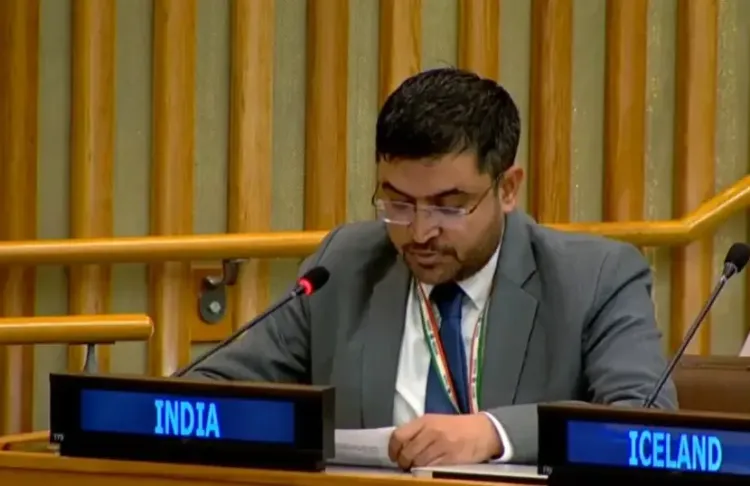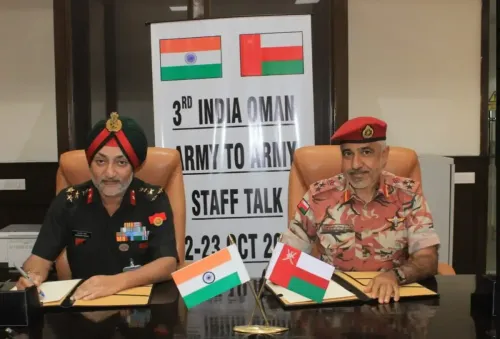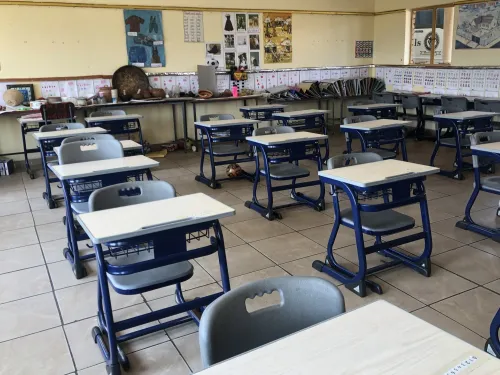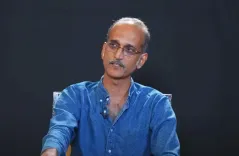Has the World Forgotten the Pahalgam Attack by Pakistan?

Synopsis
Key Takeaways
- India's strong condemnation of Pakistan's terrorism.
- Global awareness of the Pahalgam attack.
- Pakistan's portrayal of victimhood in international forums.
- Operation Sindoor aimed at countering terrorism.
- Continued persecution of minorities in Pakistan.
United Nations, Oct 23 (NationPress) India has delivered a powerful rebuttal to Pakistan's ongoing campaign, asserting that the Pahalgam attack, which was backed by Islamabad, remains vividly etched in the global consciousness. The country has labeled Pakistan as the 'worst violator of human rights'.
Raghoo Puri, the First Secretary at India's UN Mission, stated on Wednesday, "The international community is aware of Pakistan's role in sponsoring cross-border terrorism and its strategic use of terrorism against India."
He continued, "Terrorism poses the most severe threat to humanity, and those who support it, like Pakistan, are indeed the worst violators of human rights."
Puri highlighted the tragic events of April 22, 2025, when Pakistan-trained terrorists conducted brutal, targeted assaults in Pahalgam, resulting in the deaths of 26 innocent civilians, a tragedy that the world has not overlooked.
This response came as Puri condemned Pakistan's efforts to spread misinformation and create false narratives during an interactive dialogue with the Special Rapporteur on Fundamental Freedoms While Countering Terrorism at the General Assembly's Third Committee, which focuses on humanitarian issues.
This incident is part of a series of criticisms from Pakistan during the current General Assembly session, where it has persistently raised the issue of Kashmir, regardless of the agenda, a tactic that has not resonated with any of the other 192 UN member states.
Special Rapporteur Ben Saul mentioned he is in touch with both India and Pakistan regarding the Pahalgam attack but could not provide comments due to confidentiality protocols.
Puri defended India's Operation Sindoor, launched in May to target terrorist bases in Pakistan, stating, "Our right to self-defense was appropriately measured and aimed at protecting our citizens from terrorism and ensuring justice for its organizers and perpetrators."
He noted that the UNSC's press statement condemning this attack supports India's stance.
In stark contrast, he accused Pakistan of deliberately targeting border villages, resulting in civilian casualties, including children.
Puri urged Islamabad, described as the 'epicenter' of global terrorism, to reflect on its actions, cease its sermons in international forums, and prioritize protecting children and families within its own borders instead of attacking others.
He also called attention to Pakistan's recent airstrikes in Afghanistan, particularly in Kabul, which resulted in civilian casualties, framing this as a blatant violation of the UN Charter and international laws.
Puri reminded the audience of the genocide committed by Pakistan in Bangladesh during its War of Independence in 1971.
While Pakistan attempts to mask its actions under the guise of 'Islamophobia', it has systematically enforced religious and ethnic persecution, labeling certain groups as 'Khawarij/Fitna', terms that bear significant religious connotations.
These terms, rooted in Islamic history, refer to dissident factions that were historically defeated, and Pakistan has used them to delegitimize some opposition groups.
Furthermore, Pakistan has normalized the dehumanization of its ethnic and religious minorities, having institutionalized the persecution of Hindu, Christian, and Ahmadiyya communities with impunity, and this situation continues unabated.









